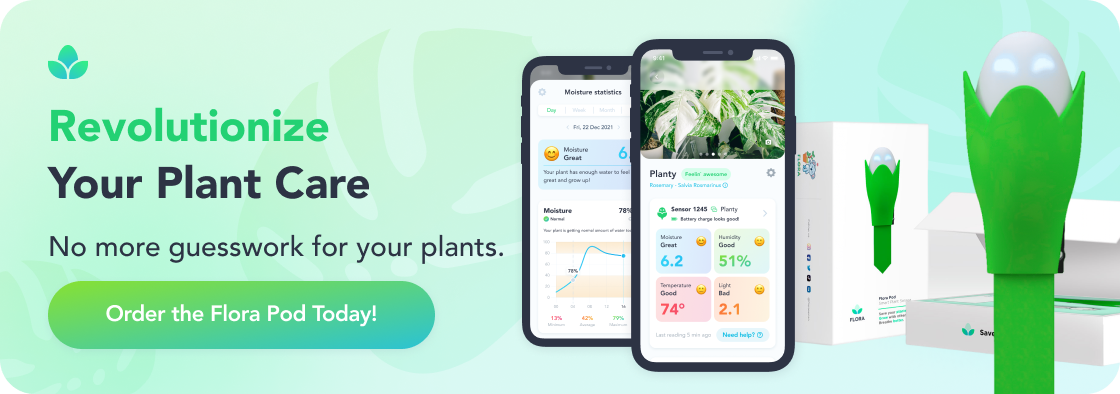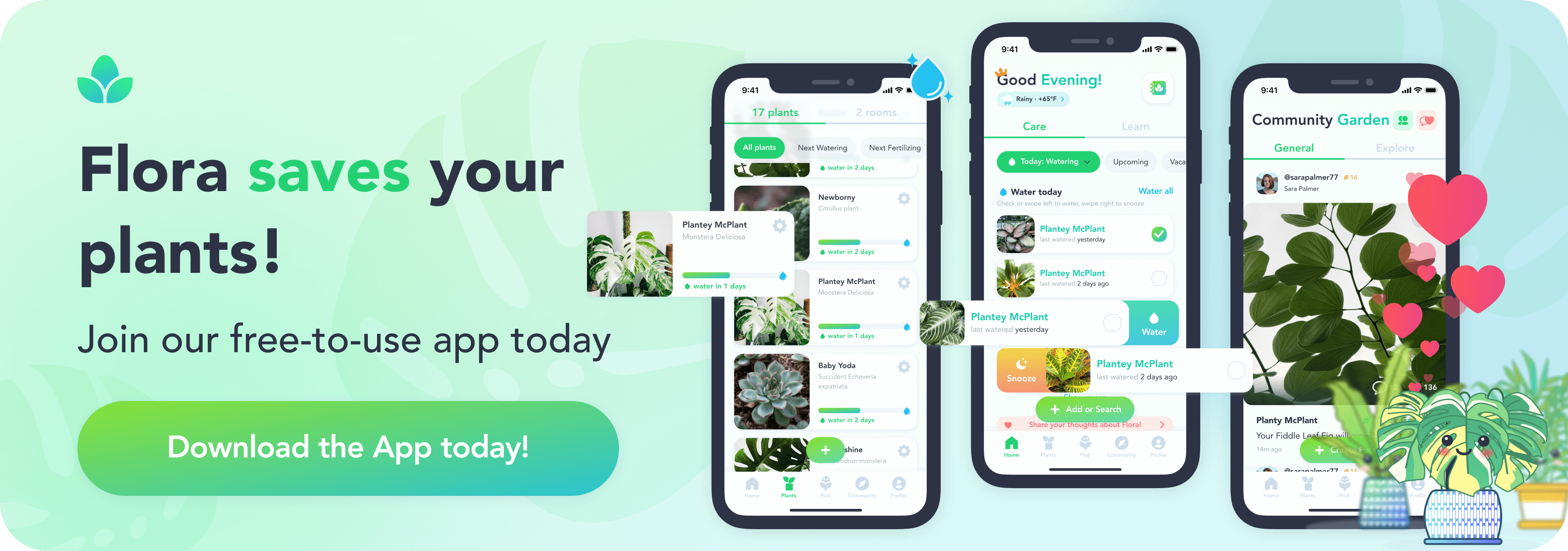Best Soil Tips for Thriving African Violets

African violets are cherished for their delicate blooms and glossy foliage, but the right soil is essential for their flourishing. In this comprehensive guide, we'll explore the best soil tips for keeping African violets healthy and vibrant.
For African violets, selecting the perfect soil mix is essential for healthy growth. Here are some factors to consider:
Well-draining soil
African violets are delicate flowering plants that require proper care and attention to thrive. One crucial aspect of their care is soil selection. These plants cannot withstand waterlogged soil, so choosing a soil mix that drains well is essential. The ideal soil mix for African violets should be lightweight and loose, allowing air and moisture to circulate freely. At the same time, it should be able to hold moisture without compacting.
Suppose you prefer to purchase a soil mix. In that case, you can find various options on the market that are formulated specifically for African violets. These soil blends typically contain a combination of peat moss, perlite, vermiculite, and other materials that provide the right balance of drainage, moisture retention, and nutrients.
Alternatively, you can make your soil mix by combining various ingredients. A simple African violet soil mix recipe would include equal parts of peat moss, perlite, and vermiculite. Peat moss retains moisture, while perlite and vermiculite add aeration and drainage to the soil. By creating your soil mix, you can tailor it to meet the specific needs of your African violets and ensure that they have a healthy growing environment.
Balanced pH levels

African violets are delicate plants that require specific soil conditions to grow properly. One of the most important factors to consider when increasing African violets is the soil's pH level. These plants prefer slightly acidic soil with a pH range of 6.0 to 6.5. This pH level is optimal for nutrient absorption and microbial activity in the soil, which is essential for the plant to thrive.
Suppose the soil is too alkaline or acidic. In that case, it can lead to nutrient deficiencies, which can cause stunted growth and yellowing of the leaves. Therefore, ensuring that the soil pH level is within the desired range for the plant's optimal growth is crucial.
To determine the pH level of your soil, you can use a pH meter or pH test strips, which are readily available at most garden centers. These tools provide accurate readings of the soil pH level, indicating if it's too acidic, alkaline, or within the desired range. By testing your soil regularly, you can adjust the pH level as needed to create the ideal conditions for your African violets to thrive.
Rich in organic matter

African violets are delicate and beautiful plants that thrive in nutrient-rich soil. Providing your plants with organic matter is essential to ensure they grow strong and healthy. Organic matter enhances soil structure, fosters beneficial microbial activity, and provides vital nutrients for plant growth.
Compost and aged manure are two of the most effective sources of organic matter for African violets. Compost, made from decomposing plant matter, is rich in nutrients and helps improve soil fertility. On the other hand, aged manure is a valuable source of organic matter that can improve soil structure and boost microbial activity.
To incorporate these materials into your soil mix, mix them with your potting soil or use them as a top dressing. By doing so, you can ensure that your African violets receive the essential nutrients they need to grow strong and beautiful. Your African violets will thrive and bring joy to your home or garden with proper care and attention.
Proper fertilization is also crucial for the health of African violets. Here are some detailed fertilizing strategies:
Balanced fertilizer
To keep your African violets healthy and thriving, giving them the proper nutrients they need is essential. African violets require a balanced fertilizer that contains equal amounts of nitrogen, phosphorus, and potassium (N-P-K). When shopping for a fertilizer, make sure to look for one that is specifically formulated for African violets. Diluting the fertilizer to half-strength is recommended to prevent fertilizer burn. This means you should mix half of the recommended amount of fertilizer with the same amount of water before applying it to your African violets. Providing your African violets with the right nutrients ensures they continue to bloom and grow beautifully.
Regular feeding
African violets are beloved for their stunning blooms and lush foliage. To ensure your plants remain healthy and continue to bloom throughout the growing season, it is recommended to feed them every 2-4 weeks. This helps provide the essential nutrients for healthy foliage growth and continuous blooming. To apply the fertilizer, carefully follow the instructions on the label to determine the correct application rate for your plants. It is important not to over-fertilize as this can damage the roots and the plant. Regularly feeding your African violets during the growing season can help keep them looking beautiful and thriving.
Watering Well

African violets are beautiful and delicate plants that require proper care to thrive. One critical factor that can affect their growth is the buildup of excess salts in the soil. Salts can accumulate over time and damage the plant's roots, leading to stunted growth, brown leaves, and other problems. To avoid this, it's important to periodically flush out excess salts from the soil.
You can start by watering the african violet until the soil is moist but not soaking wet. Then, water it again until it runs freely from the drainage holes to ensure thorough flushing. This will help to remove any buildup of salts and other minerals that may be present in the soil. Distilled or rainwater is also recommended, as it contains fewer salts than tap water.
In addition to flushing out excess salts, monitoring the soil moisture level and avoiding overwatering the plant is essential. African violets prefer moist but not wet soil, so let the soil dry out slightly between waterings. Your African violets will thrive and bloom with proper care and attention for years.
FAQ: African Violet Soil
What is the best soil for African violets?
The best soil for African violets is a well-draining, slightly acidic (pH 6.0-6.5) and enriched with organic matter like compost.
How often should I fertilize my African violets?
Fertilize your African violets every 2-4 weeks during the growing season, using a balanced fertilizer diluted to half strength.
Can I use regular potting soil for African violets?
Regular potting soil may not provide adequate drainage for African violets and can lead to root rot. It's best to use a soil mix specifically formulated for these plants.
What causes yellow leaves on African violets?
Yellow leaves on African violets can indicate various issues, including overwatering, underwatering, nutrient deficiencies, or pest infestations. Check the soil moisture, adjust watering accordingly, and ensure your plants receive adequate light and nutrients.
How do I repot African violets?
When repotting African violets, gently remove the plant from its pot, gently loosen the roots, and replant it in fresh, well-draining soil. Water thoroughly after repotting and place the plant in a location with bright, indirect light.
Fern's Leafy Learnings
Proper soil selection is crucial for healthy African violets.
Regular fertilization supports robust growth and abundant blooms.
Monitoring soil moisture and pH levels is critical to success.
Flush out excess salts periodically to prevent root damage.
Repotting African violets promotes healthy root growth and vitality.
Deepen Your Roots with Flora
At Flora, we not only bring you a vibrant selection of locally sourced, rare, and delightful plants, but we also serve as your continuous guide in your plant parenting voyage, ensuring every leaf in your sanctuary thrives. With our Flora Pod™ technology and a nurturing community of over 250,000 plant lovers, we cultivate a space where every plant parent - novice or expert - can blossom.
We propagate with a commitment to sustainability, connection, and ceaseless growth, fostering a community where each member, and their plants, are cherished and nurtured.
Crave a lush, thriving green space? Adopt a plant from Flora today!
Flora Pod™ is featured on Shark Tank!

5 Signs Your Houseplant Needs Repotting Now
Mar 02, 2026
6 Anthurium Benefits You Didn't Know About
Mar 02, 2026

How to Prune Your Houseplants Before Spring Growth Season
Mar 02, 2026

10 Best Houseplants for Spring Repotting Success
Mar 02, 2026

Can ZZ Plants Survive in Low Light Conditions?
Mar 02, 2026

5 Critical Pre-Spring Pruning Tips for Houseplants
Mar 02, 2026

Can Succulents Survive Winter Outdoors in Your Climate Zone?
Mar 02, 2026

Which Houseplants Are Toxic to Cats and Should You Avoid Them?
Mar 02, 2026




